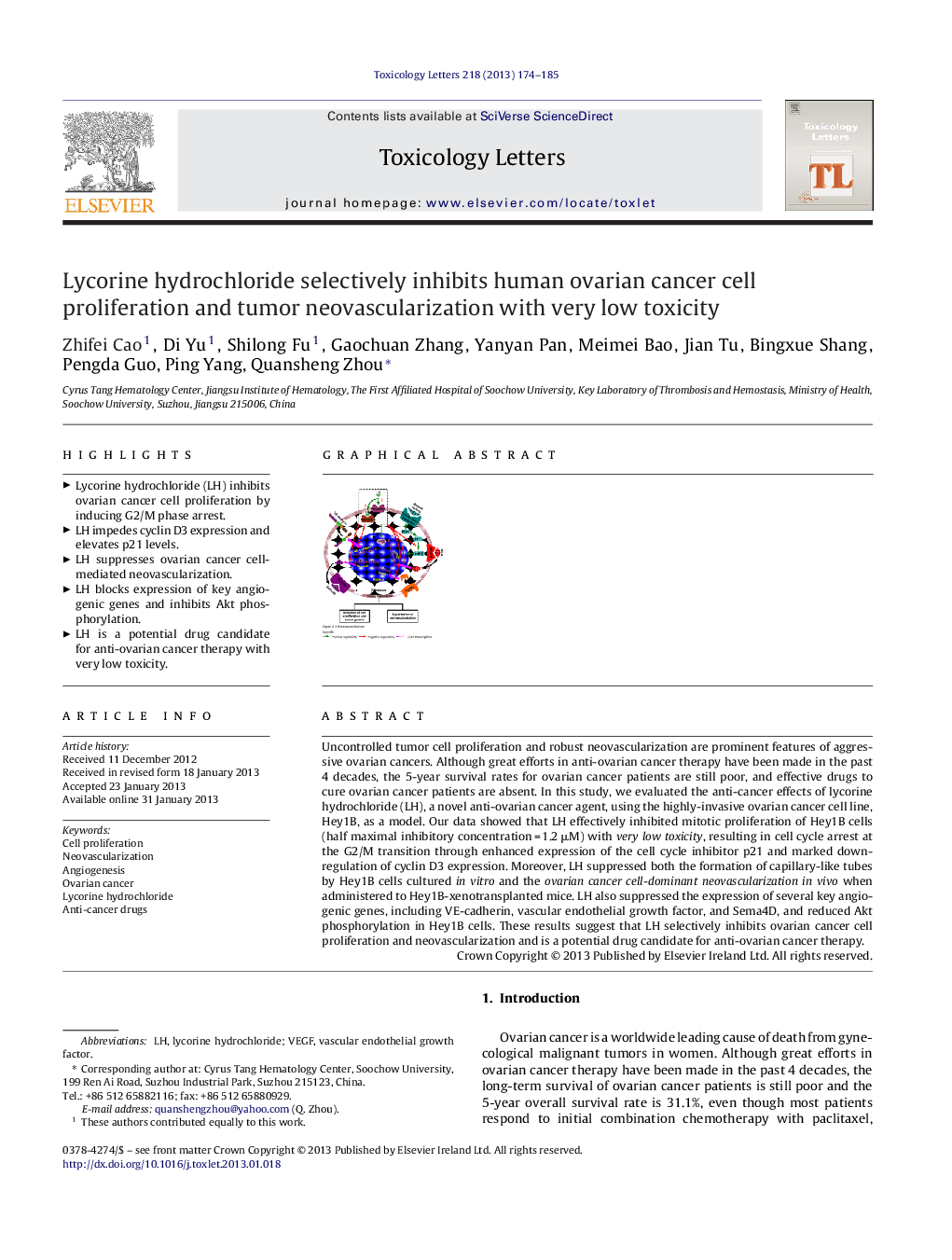| Article ID | Journal | Published Year | Pages | File Type |
|---|---|---|---|---|
| 2599348 | Toxicology Letters | 2013 | 12 Pages |
Uncontrolled tumor cell proliferation and robust neovascularization are prominent features of aggressive ovarian cancers. Although great efforts in anti-ovarian cancer therapy have been made in the past 4 decades, the 5-year survival rates for ovarian cancer patients are still poor, and effective drugs to cure ovarian cancer patients are absent. In this study, we evaluated the anti-cancer effects of lycorine hydrochloride (LH), a novel anti-ovarian cancer agent, using the highly-invasive ovarian cancer cell line, Hey1B, as a model. Our data showed that LH effectively inhibited mitotic proliferation of Hey1B cells (half maximal inhibitory concentration = 1.2 μM) with very low toxicity, resulting in cell cycle arrest at the G2/M transition through enhanced expression of the cell cycle inhibitor p21 and marked down-regulation of cyclin D3 expression. Moreover, LH suppressed both the formation of capillary-like tubes by Hey1B cells cultured in vitro and the ovarian cancer cell-dominant neovascularization in vivo when administered to Hey1B-xenotransplanted mice. LH also suppressed the expression of several key angiogenic genes, including VE-cadherin, vascular endothelial growth factor, and Sema4D, and reduced Akt phosphorylation in Hey1B cells. These results suggest that LH selectively inhibits ovarian cancer cell proliferation and neovascularization and is a potential drug candidate for anti-ovarian cancer therapy.
Graphical abstractFigure optionsDownload full-size imageDownload as PowerPoint slideHighlights► Lycorine hydrochloride (LH) inhibits ovarian cancer cell proliferation by inducing G2/M phase arrest. ► LH impedes cyclin D3 expression and elevates p21 levels. ► LH suppresses ovarian cancer cell-mediated neovascularization. ► LH blocks expression of key angiogenic genes and inhibits Akt phosphorylation. ► LH is a potential drug candidate for anti-ovarian cancer therapy with very low toxicity.
